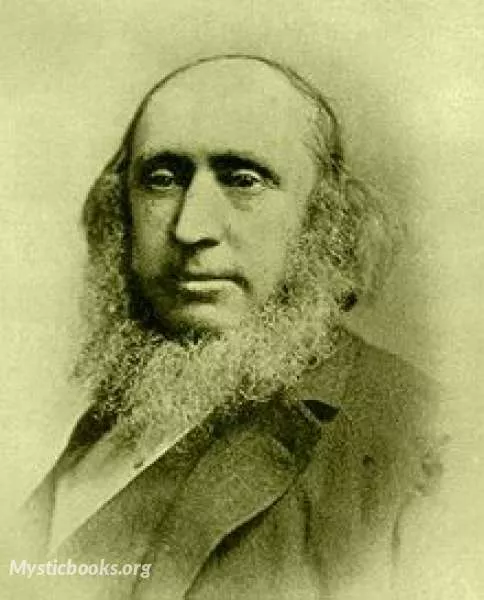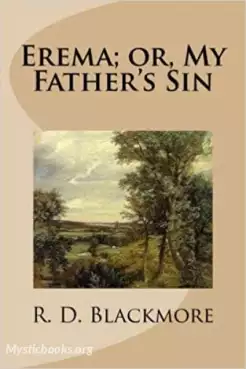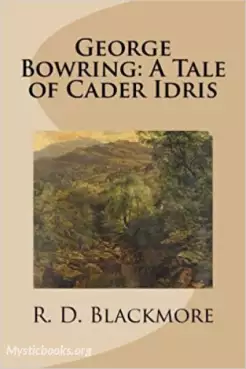
Timeline
Title
Country/Nationality
R.D. Blackmore
Richard Doddridge Blackmore, known as R. D. Blackmore, was one of the most famous English novelists of the second half of the nineteenth century. He won acclaim for vivid descriptions and personification of the countryside, sharing with Thomas Hardy a Western England background and a strong sense of regional setting in his works.
Blackmore, often referred to as the "Last Victorian", was a pioneer of the movement in fiction that continued with Robert Louis Stevenson and others. He has been described as "proud, shy, reticent, strong-willed, sweet-tempered, and self-centred." Apart from his novel Lorna Doone, which has enjoyed continuing popularity, his work has gone out of print.
Richard Doddridge Blackmore was born on 7 June 1825 at Longworth in Berkshire (now Oxfordshire), one year after his elder brother Henry (1824–1875), where his father, John Blackmore, was Curate-in-charge of the parish. His mother died a few months after his birth – the victim of an outbreak of typhus which had occurred in the village. After this loss John Blackmore moved to Bushey, Herts, then to his native Devon, first to Kings Nympton, then Culmstock, Tor Mohun and later to Ashford, in the same county. Richard, however, was taken by his aunt, Mary Frances Knight, and after her marriage to the Rev. Richard Gordon, moved with her to Elsfield rectory, near Oxford. His father married again in 1831, whereupon Richard returned to live with him. Having spent much of his childhood in the lush and pastoral "Doone Country" of Exmoor, and along the Badgworthy Water (where there is now a memorial stone in Blackmore's honour), Blackmore came to love the very countryside he immortalised in Lorna Doone.
In 1837, Blackmore entered Blundell's School in Tiverton. He excelled in classical studies, and later won a scholarship to Exeter College, Oxford, where he took his degree in 1847. During a university vacation he made his first attempt at writing a novel. This was the beginning of The Maid of Sker – not, in fact, completed until many years later, and eventually published in 1872 - which he himself would come to consider his finest novel.
After leaving Oxford and spending some time as a private tutor, Blackmore decided on a career in law. He entered the Middle Temple in 1849 and was called to the Bar in 1852. Ill-health, however, prevented him from continuing legal work as a full-time occupation and in 1854, he took the post of classics master at Wellesley House Grammar School, Hampton Road, Twickenham. In later years this became the Metropolitan and City of London Police Orphanage and then Fortescue House School. Soon after accepting this position, he moved from London to No. 25 Lower Teddington Road, Hampton Wick – where he lived until he moved to his new home in Teddington.
Blackmore was married on 8 November 1853 at Trinity Church, Holborn to Lucy Maguire. She was 26, a Roman Catholic and somewhat delicate, which is assumed to be the reason that they never had any children. They were both fond of her sister Agnes' four children and often had them to stay. As well as helping with their education, the Blackmores seem to have adopted Eva when she was 7. Theirs was described by Blackmore's sister as a "happy marriage."
In September 1857, Blackmore's uncle, the Rev. H.H. Knight, Rector of Neath, Glamorgan, died and left his nephew a sum of money which enabled him to realise a long-held ambition of possessing a house in the country encompassed by a large garden. Blackmore's father encouraged him in the scheme and helped him to carry it into effect.
At the time Blackmore came to Teddington, the railway had not yet disturbed its quiet rural atmosphere. Before long, however, plans were in hand for the purchase of land and the construction of lines. In 1868, Blackmore won a fight against the claims made on his property by the London and South Western Railway Company, but he was unable to prevent the building of the railway station almost directly opposite his house.
Blackmore followed Sir Walter Scott in often setting his characters against a significant historical background, as with Springhaven (1887) and the Napoleonic Wars; his descriptive powers perhaps exceeded his narrative structures.
Some local residents in Teddington regarded Blackmore as somewhat unsociable, if not misanthropic. Charles Deayton, a Teddington merchant, is recorded as stating to a visitor –
"He is not a social man, and seems wedded to his garden in summer and his book writing in winter. That is all I know about him; except that he keeps the most vicious dogs to protect his fruit, and I would advise you to avoid the risk of visiting him."
Blackmore's two nieces continued to live in Gomer House; Amelia died in 1911 and was also buried in the Blackmore grave. Then in October 1938 there was an auction of all its contents, which included Blackmore's own library containing first editions of his works. The house itself was later demolished and Doone Close, Blackmore's Grove and Gomer Gardens were built, referencing the novelist's associations with Teddington. The end of Doone Close marks the approximate site of Gomer House. Blackmore's market garden covered the area between the present Station Road and Field Lane.
Books by R.D. Blackmore

Erema
Erema; or, my father's sin is a three-volume novel by R. D. Blackmore published in 1877. The novel is narrated by a teenage girl called Erema whose father escaped from England having been charged with a murder he did not commit. Erema has grown up in...

Lorna Doone: A Romance of Exmoor
Lorna Doone: A Romance of Exmoor is a novel by English author Richard Doddridge Blackmore, published in 1869. It is a romance based on a group of historical characters and set in the late 17th century in Devon and Somerset, particularly around the Ea...

George Bowring - A Tale Of Cader Idris
Our narrator, Bob, knows George Bowring from school days. Their lives, dreams and misfortunes are parallel until George marries the woman Bob loves. But still, their friendship endures, despite numerous tensions over the years. The two men go on a fi...